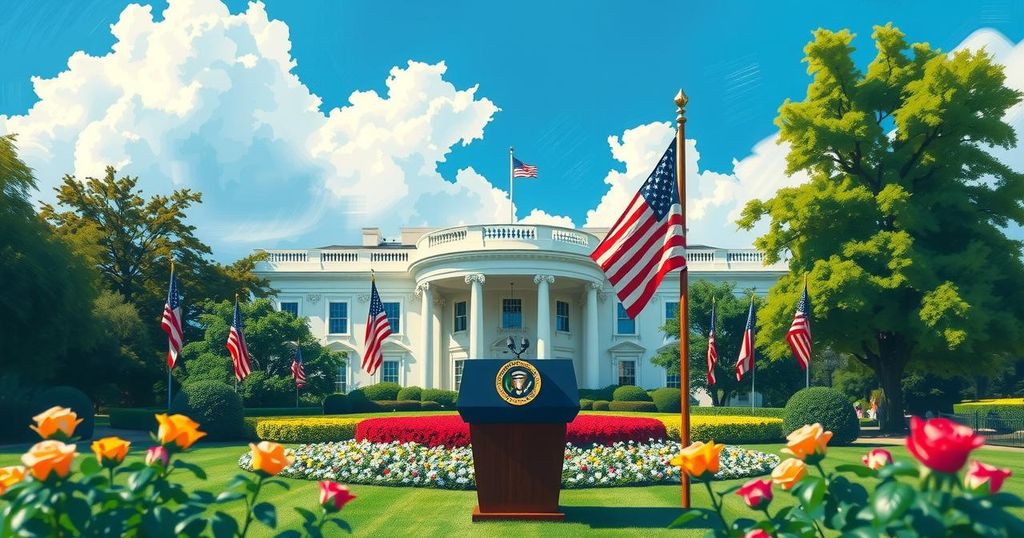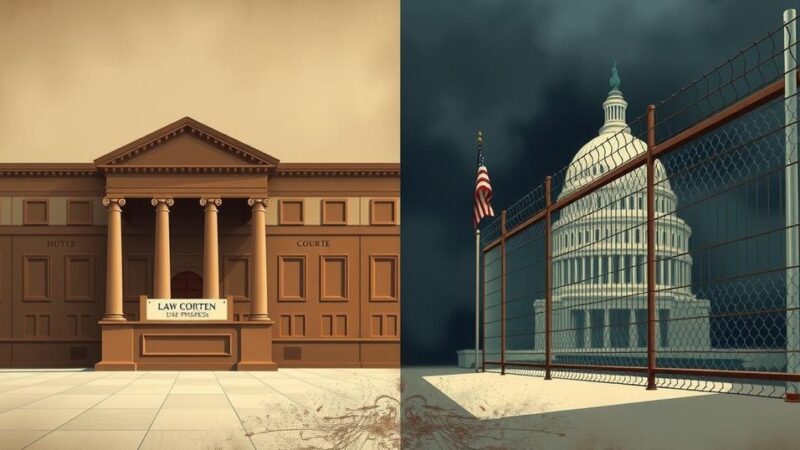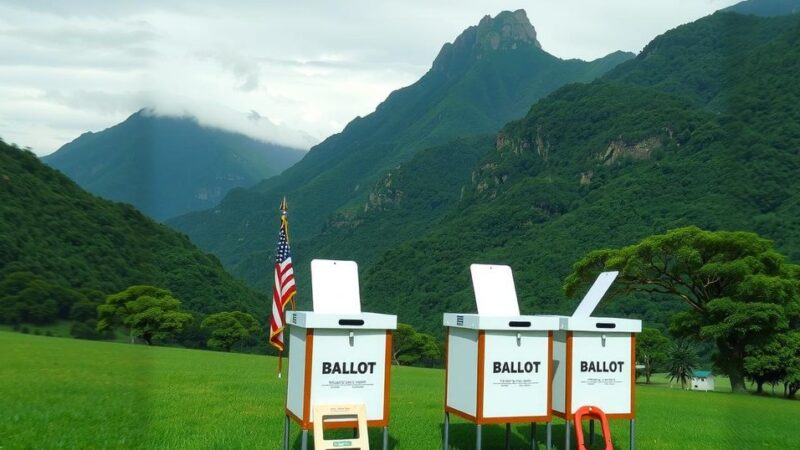President Trump is poised to announce reciprocal tariffs at 4 PM Washington time today. The announcement, criticized by India and other nations for their trade barriers, could impose a 20% tax on imports. The implications could include higher costs for U.S. companies and various responses from affected countries, while real-time updates on the situation will be forthcoming.
The anticipation regarding President Donald Trump’s announcement of reciprocal tariffs has heightened globally, particularly in relation to India, as the White House criticized India for implementing a 100% tariff on U.S. agricultural products. Similar trade barriers imposed by the European Union, Japan, and Canada were also highlighted, adding to India’s anxiousness regarding the forthcoming tariff announcement.
According to a Washington Post report, President Trump and his team have devised a plan to impose a 20% tax on most imported goods into the United States. The proposal suggests utilizing revenue generated from these tariffs for tax refunds or dividends for the populace, a move that could have significant economic implications.
Scheduled for today in the Rose Garden at the White House, the tariff announcement is set for 4 PM Washington time, equating to 1:30 AM Indian Standard Time. U.S. Treasury Secretary Scott Bessent confirmed the timing, but the specific details remain uncertain as the event approaches.
Once enacted, U.S. companies importing goods will be subjected to these new taxes almost immediately, forcing many to evaluate methods to mitigate increased costs. Potential strategies include altering suppliers, sharing costs with partners, or raising consumer prices, which could inadvertently lead to decreased consumer demand and heighten recession worries both domestically and globally.
Reciprocal tariffs refer to surcharges that either match or respond to tariffs imposed by other countries on American goods. Following President Trump’s inauguration, he indicated that these tariffs would be customized depending on each specific country.
Tariffs levied by the U.S. on imports serve as a cost addition related to trade dynamics and supply chains. Tariff costs can vary based on the reactions of other countries to the U.S. tariff policies, influencing international trade relations.
Besides previously established tariffs on aluminum and steel, new tariffs on automobiles will come into effect starting April 3, further complicating the trade landscape amidst the reciprocal tariffs announced today.
Israel, responding to directives from Prime Minister Benjamin Netanyahu, has eliminated all custom duties on U.S. goods, an amendment approved by the Knesset Finance Committee. This action showcases Israel’s collaboration and support of U.S. trade initiatives.
Prior to the U.S. tariff announcements, Australian Prime Minister Anthony Albanese affirmed his commitment to protecting national interests alongside opposition leader Peter Dutton, emphasizing that Australia will not retaliate against U.S. tariff policies. Australia’s relationship with the U.S. is strengthened by a free trade agreement allowing U.S. exports access without tariffs.
There remains uncertainty regarding which countries will specifically incur these new reciprocal tariffs, although President Trump mentioned their potential application to “all countries.” Reports indicate that specific nations of interest include India, Canada, China, the European Union, and many others, including Brazil, Japan, and the UK.
As the countdown to the announcement progresses, real-time updates on the developments surrounding U.S. tariff policy will remain available for public consumption, indicating the broader implications for international commerce and relations in the future.
In summary, President Trump’s upcoming announcement of reciprocal tariffs is pivotal and is anticipated to take place today in the White House Rose Garden. This decision follows heavy criticism of India’s trade policies and suggests potential economic ramifications for numerous countries. With the imposition of new tariffs, reactions among affected nations and U.S. businesses will be crucial in determining the overall impact on trade and economic stability in both the U.S. and worldwide markets.
Original Source: www.financialexpress.com






